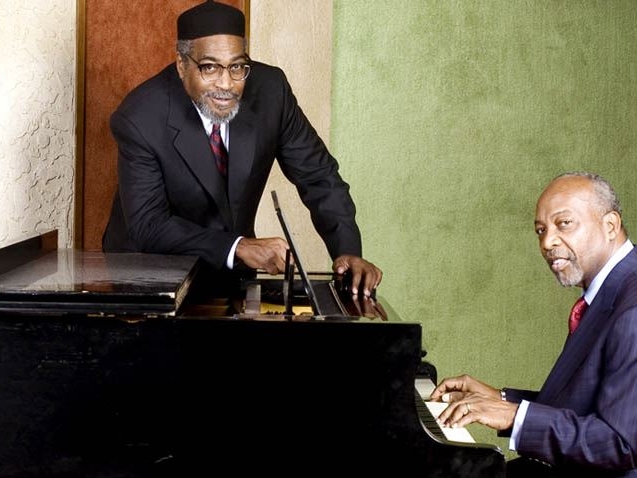“Don’t do it, reconsider!”
Aside from the select few artists who achieve the type of success where their concerts, merchandise, endorsements and other ancillary income actually generates significant revenue, this can’t be good.
SAN FRANCISCO–Warner Music Group CEO Edgar Bronfman Jr. thinks there is still a big place in the world for much-maligned major record labels.
“The value that we have is both on the editorial side, and on the marketing and promotion side,” Bronfman said in a panel at the Web 2.0 Summit on Thursday afternoon. “Those channels are getting harder, not easier.” In other words, it was an argument very similar to the one that newspapers and magazines have made in justifying their place in an industry that’s getting flooded by scrappy bloggers–big music labels provide the quality and experience.
Even in the face of In Rainbows, the label-ditching, revolutionary effort from Radiohead, he said he hasn’t changed his mind. “There will be different models (as opposed to labels, particularly for artists or bands who have built up a long and distinguished career, whose products don’t necessarily need marketing or promotion, whose editorial is going to go out unfettered, but there are very, very few of those,” Bronfman insisted. “It’s getting harder to build a multiyear, certainly a multidecade career, than ever before.”
Bronfman shared the stage with moderator and conference host John Battelle, and co-panelist Chris DeWolfe, co-founder and CEO of MySpace. Bronfman’s Warner Music Group, along with each of the other major labels, has taken a financial stake in MySpace Music, the News Corp.-owned social network’s ambitious retail and streaming hub.
MySpace Music, a sponsor of the conference, distributed free CDs to attendees subtitled “The Last CD You Will Ever Get.”
DeWolfe, notably less loquacious than Bronfman on the panel, said that there have already been 80 million playlists created with MySpace Music and that more than 5 million bands are on the social network. Big brand advertisers, like Toyota and McDonalds, are on board. “The obvious yardstick, long-term, for success, is profitability,” DeWolfe said. “We started this business just like we started MySpace, to become profitable very quickly.”
He said that MySpace Music intends to be “a full 360 model,” with “download revenue streams, ringtone revenue streams, tickets, (and) merchandise.”
Bronfman said that Warner Music Group is also adopting a “360” strategy in the face of a need to adopt more solid revenue streams. “Every new artist we sign, we sign now with rights in all their revenue streams: ticketing, touring, merchandising, sponsorship,” Bronfman said. “We’re only signing artists that way and we now have over a third of our current roster signed to 360 rights.”
“360” deals rose to fame last year at Warner’s expense–Madonna left the label to adopt a 360 contract with concert promoter Live Nation.
Battelle, a seasoned devil’s advocate, repeatedly prodded the two into talking about Apple’s iTunes, which remains the overwhelming frontrunner in digital music. Both Bronfman and DeWolfe spoke about it with a mix of reverence and dismissal.
“Apple’s done a phenomenal job,” Bronfman said when Battelle asked him to provide his honest opinion of the Steve Jobs-helmed company. “It’s true, it’s really true, what is remarkable and why you have to give them so much credit is (that) no one has managed to pull it off. No one has been able to come up with a sexy device that consumers want, that has an interface that is seamless, that hooks up with a service that gives them the content they wanted.”
“I don’t really think iTunes has ever been about community,” DeWolfe said when asked if he was concerned about it as a competitor. “I think they’re focused on selling devices, and that’s why I don’t think they’re competitive to us.”
Early on, Battelle attempted to push out some details about the widespread reports that MTV executive Courtney Holt would be joining MySpace as the head of MySpace Music. Neither DeWolfe nor Bronfman would cough anything up.
“It’s actually been a difficult position to fill because there’s so many variables…we’re looking for someone that loves music, understands music, has been in the music industry but understands technology and understands user experience,” DeWolfe said. He said they interviewed about 40 people for the job. “We’ve only made one offer, and we’re very confident that we’ll be able to make an announcement in the near future.”
RELATED POSTS
April 9, 2010
New Music-Kyonte’
April 18, 2017
#ICYMI – New Music Mondays
May 9, 2012
New Music Releases This Week
December 30, 2010
Philly Music Tribute
January 9, 2011
Moby on the Music Industry
December 15, 2010



